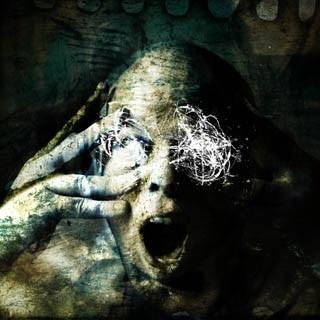 I
I
THE way old royal houses are interwined
with all thrones in their vicinity,
we're anciently related to every Power,
even when we're tired, fearful, and cast out.
Infinitely many things pertain to us
that occur far away, to others:
a foreign girl, weighed down by sadness,
in an evening hour a song arose,
the night was mute, and a wall-clock struck
in a room beside a dead mother...
We feel all that and live through it
and grow heavy from it and feel a lightness
when that passed which likens us
to distant destiny, its song and day and death.
II
YOU sang: We saw
your voice
open up for us,
the deep silver minework of your soul.
The secluded room grew dark.
You were silent, a little out of breath.
We felt a greatness,-
still hearing what you sang.
Memories of things never experienced
filled us. And when we begged you: Sing,
we meant: Bestow on us times past,
place ancestors behind us, royal epochs,
create generations that flourish,
women in white and an abode in green
and a slim man in black clothes
and a park, a castle, and a battle,
a frenzied wrestling for a slender flag,
and evenings, figures by the alcove,
the white country house of a courtesan,
quietly repeated in a nearby pond,-
and a pounding at doors and hearts
by fleeting gleams from gold and crystal,
jasmine and roses, scents of summer weeks.
And outside the windows: night and nightingale.
And then again storm and downfall and decay.
Typhus wards, infirmaries, nurses
who teach strange men to accept their dying,
more strange men who fight death off,
torn between fear and longing,
feverish foreheads that distort the world,
greyhounds and great lords,
and everything as close as yesterday
and as distant as never yet:
such was your song.
You sang us epochs.
And with senses as yet unnamed,
and of which no one knows where they dwell,
we received longings
and sensations
we shall never lose.
We shall make gestures
that we have never made before.
And shall rest heavily
from struggles that weren't real.
But what is reality,
must it coincide with time?
The world is real.
And everything is world
that moves us, to great feeelings or to fear:
desire and solitude, death and song.
(Excerpt from
Diaries of a young poet by Rainer Maria Rilke, Translated by Edward Snow & Michael Winkler. Published by W. W. Norton & Company, 1998)


















